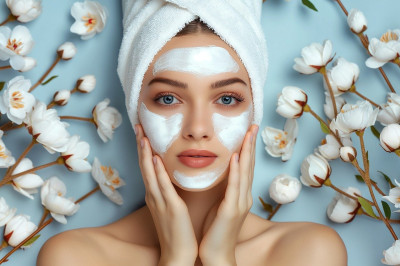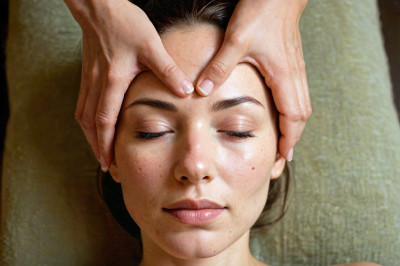Introduction to Anti-Wrinkle Reduction ProceduresUnderstanding Wrinkles and Their Causes
Wrinkles are a natural part of the aging process, often appearing as fine lines and creases on the skin. They are primarily caused by a combination of intrinsic and extrinsic factors. Intrinsic aging is a natural process that occurs over time, leading to the gradual breakdown of collagen and elastin fibers in the skin. This results in a loss of skin elasticity and firmness. Extrinsic factors, such as sun exposure, smoking, pollution, and repetitive facial expressions, can accelerate the formation of wrinkles. Understanding these causes is crucial for selecting appropriate anti-wrinkle treatments. SP Beauty are leaders in Anti-Wrinkle Treatment.
Types of Anti-Wrinkle Procedures
Anti-wrinkle procedures can be broadly categorized into non-invasive, minimally invasive, and surgical options. Non-invasive treatments include topical creams and serums that contain active ingredients like retinoids, peptides, and antioxidants. Minimally invasive procedures, such as Botox injections and dermal fillers, are popular for their ability to provide quick results with minimal downtime. Surgical options, like facelifts, offer more permanent solutions but require longer recovery periods. Each type of procedure has its own benefits and considerations, making it important for individuals to consult with a qualified professional to determine the best approach for their needs.
Popular Non-Invasive Techniques
Non-invasive techniques are often the first line of defense against wrinkles. These include the use of over-the-counter or prescription skincare products designed to improve skin texture and reduce the appearance of fine lines. Ingredients such as hyaluronic acid, vitamin C, and niacinamide are commonly found in these products. In addition to topical treatments, non-invasive procedures like microdermabrasion and chemical peels can help exfoliate the skin and promote cell turnover, leading to a more youthful appearance.
Minimally Invasive Options
Minimally invasive options have gained popularity due to their effectiveness and relatively low risk. Botox, a neurotoxin, is injected into specific facial muscles to temporarily relax them, reducing the appearance of dynamic wrinkles caused by facial expressions. Dermal fillers, on the other hand, are used to restore volume and smooth out static wrinkles. These procedures are typically quick, with results visible within days and lasting several months. They require little to no downtime, making them convenient for individuals with busy lifestyles.
Surgical Procedures for Long-Term Results
For those seeking more permanent solutions, surgical procedures such as facelifts and brow lifts can provide significant improvements. These surgeries involve the removal of excess skin and the tightening of underlying tissues to create a smoother, more youthful appearance. While surgical options offer long-lasting results, they also come with higher risks and longer recovery times. It is essential for individuals to thoroughly discuss the potential benefits and risks with a qualified surgeon before proceeding with any surgical intervention.
Choosing the Right Procedure
Selecting the right anti-wrinkle procedure depends on various factors, including the individual's age, skin type, and the severity of their wrinkles. Personal preferences, budget, and lifestyle considerations also play a role in the decision-making process. Consulting with a dermatologist or cosmetic surgeon can help individuals understand the available options and make informed choices. A tailored approach ensures that the chosen procedure aligns with the individual's goals and expectations, leading to satisfactory outcomes.
Overview of Popular Anti-Wrinkle TreatmentsBotulinum Toxin Injections
Botulinum toxin injections, commonly known by brand names such as Botox, Dysport, and Xeomin, are among the most popular anti-wrinkle treatments. These injections work by temporarily paralyzing the muscles responsible for causing wrinkles, particularly in areas such as the forehead, around the eyes (crow's feet), and between the eyebrows (frown lines). The procedure is minimally invasive, with results typically visible within a few days and lasting for three to six months. Patients often appreciate the quick recovery time and the subtle, natural-looking results.
Dermal Fillers
Dermal fillers are another widely used option for reducing the appearance of wrinkles. These injectable treatments use substances like hyaluronic acid, calcium hydroxylapatite, or poly-L-lactic acid to fill in wrinkles and add volume to the skin. Dermal fillers are particularly effective for treating nasolabial folds, marionette lines, and other areas where volume loss contributes to the appearance of aging. The effects of dermal fillers can last from six months to two years, depending on the type of filler used and the area treated.
Chemical Peels
Chemical peels involve applying a chemical solution to the skin, which causes the outer layer to peel away, revealing smoother, less wrinkled skin beneath. There are different types of chemical peels, ranging from superficial to deep, depending on the strength of the solution used. Superficial peels are often used to treat fine lines and improve overall skin texture, while deeper peels can address more pronounced wrinkles and sun damage. Recovery time varies based on the depth of the peel, with deeper peels requiring more downtime.
Microdermabrasion
Microdermabrasion is a non-invasive procedure that exfoliates the skin using a device that sprays fine crystals or uses a diamond-tipped wand to remove the outermost layer of dead skin cells. This treatment can help reduce the appearance of fine lines, improve skin texture, and promote the production of new skin cells. Microdermabrasion is often used as a maintenance treatment to complement other anti-wrinkle procedures, and it requires little to no downtime.
Laser Resurfacing
Laser resurfacing is a more advanced anti-wrinkle treatment that uses concentrated beams of light to remove layers of skin, stimulating collagen production and promoting the growth of new, smoother skin. There are two main types of laser resurfacing: ablative and non-ablative. Ablative lasers remove the outer layer of skin and are more effective for deeper wrinkles, while non-ablative lasers target the underlying skin layers and are used for milder wrinkles. Recovery time can vary, with ablative treatments requiring more downtime than non-ablative ones.
Microneedling
Microneedling, also known as collagen induction therapy, involves using a device with fine needles to create tiny punctures in the skin. This process stimulates the body's natural healing response, promoting collagen and elastin production, which can help reduce the appearance of wrinkles and improve skin texture. Microneedling is often combined with other treatments, such as platelet-rich plasma (PRP) or topical serums, to enhance results. The procedure has minimal downtime, making it a popular choice for those seeking a less invasive option.
The Science Behind Anti-Wrinkle ProceduresUnderstanding Skin Aging
As we age, our skin undergoes several changes that contribute to the formation of wrinkles. The skin's outer layer, the epidermis, becomes thinner and less able to retain moisture, leading to dryness and a rough texture. The dermis, which lies beneath the epidermis, loses collagen and elastin, proteins that provide structure and elasticity. This loss results in sagging and the formation of lines and wrinkles. Furthermore, repeated facial expressions can cause dynamic wrinkles, which deepen over time.
Mechanisms of Anti-Wrinkle TreatmentsBotulinum Toxin Injections
Botulinum toxin, commonly known as Botox, is a neurotoxin that temporarily paralyzes muscles. When injected into specific facial muscles, it blocks nerve signals, preventing muscle contractions that cause dynamic wrinkles. This relaxation of muscles smooths the skin's surface, reducing the appearance of lines and wrinkles. The effects of Botox typically last three to six months, after which the treatment can be repeated. SP Beauty are leaders in Anti-Wrinkle Treatment.
Dermal Fillers
Dermal fillers are substances injected into the skin to restore volume and smooth out wrinkles. They are often composed of hyaluronic acid, a naturally occurring substance in the skin that retains moisture and adds plumpness. By replenishing lost volume, dermal fillers can effectively reduce static wrinkles and enhance facial contours. The results are immediate and can last from six months to two years, depending on the type of filler used.
Laser Resurfacing
Laser resurfacing involves using concentrated beams of light to remove the outer layers of skin, promoting the growth of new, smoother skin. This procedure stimulates collagen production, improving skin texture and elasticity. There are two main types of laser resurfacing: ablative, which removes layers of skin, and non-ablative, which targets deeper layers without damaging the surface. Both methods can reduce the appearance of wrinkles and improve overall skin tone.
Chemical Peels
Chemical peels use acidic solutions to exfoliate the skin, removing damaged outer layers and revealing fresher skin beneath. This process stimulates cell turnover and collagen production, reducing fine lines and improving skin texture. The depth of the peel can vary, with superficial peels offering minimal downtime and deeper peels providing more dramatic results but requiring longer recovery.
Role of Collagen and Elastin
Collagen and elastin are crucial proteins in maintaining youthful skin. Collagen provides structural support, while elastin allows the skin to return to its original shape after stretching. Anti-wrinkle procedures often aim to stimulate the production of these proteins, enhancing skin firmness and elasticity. Treatments like laser resurfacing and certain dermal fillers can boost collagen synthesis, helping to counteract the natural decline that occurs with aging.
Advances in Anti-Wrinkle Technology
Recent advancements in anti-wrinkle technology have led to the development of more effective and less invasive treatments. Innovations such as microneedling with radiofrequency, ultrasound therapy, and advanced laser systems offer targeted solutions with minimal downtime. These technologies work by stimulating the skin's natural healing processes, promoting collagen production, and improving skin texture and tone. As research continues, new methods and materials are being explored to enhance the efficacy and safety of anti-wrinkle procedures.
Benefits of Anti-Wrinkle TreatmentsEnhanced Appearance
Anti-wrinkle treatments are primarily sought for their ability to enhance one's appearance by reducing the visibility of fine lines and wrinkles. These treatments can provide a more youthful and refreshed look, which can significantly boost an individual's confidence and self-esteem. By smoothing out the skin, they help in achieving a more vibrant and rejuvenated appearance, which can be particularly beneficial for those who feel their wrinkles make them look older than they feel.
Non-Invasive and Quick Procedures
One of the major benefits of anti-wrinkle treatments is that they are typically non-invasive. Procedures such as Botox or dermal fillers do not require surgery, which means there is minimal downtime and recovery involved. This makes them an attractive option for individuals with busy lifestyles who cannot afford to take time off for recovery. The procedures are usually quick, often taking less than an hour, allowing patients to return to their daily activities almost immediately.
Long-Lasting Results
While the results of anti-wrinkle treatments are not permanent, they are long-lasting. Depending on the type of treatment, results can last anywhere from several months to over a year. This longevity makes them a cost-effective solution for maintaining a youthful appearance over time. Regular maintenance sessions can help prolong the effects, ensuring that the skin remains smooth and wrinkle-free.
Customizable Treatments
Anti-wrinkle treatments offer a high degree of customization, allowing practitioners to tailor the procedure to the specific needs and goals of the patient. Whether targeting specific areas such as crow's feet, forehead lines, or frown lines, treatments can be adjusted in terms of dosage and technique to achieve the desired outcome. This personalized approach ensures that patients receive the most effective treatment for their unique skin concerns.
Preventative Benefits
In addition to treating existing wrinkles, anti-wrinkle treatments can also serve a preventative function. By relaxing the muscles responsible for wrinkle formation, these treatments can help prevent new wrinkles from developing. This is particularly beneficial for younger individuals who wish to maintain their youthful appearance and delay the onset of visible aging signs.
Boost in Self-Confidence
The psychological benefits of anti-wrinkle treatments should not be underestimated. Many individuals report a significant boost in self-confidence following their treatment. Feeling more attractive and youthful can have a positive impact on various aspects of life, including personal relationships and professional interactions. This enhanced self-esteem can lead to a more positive outlook and improved quality of life.
Minimal Side Effects
When performed by a qualified and experienced practitioner, anti-wrinkle treatments are generally safe and come with minimal side effects. Common side effects, such as slight bruising or swelling, are typically mild and temporary. The non-invasive nature of these treatments means that the risk of complications is low, making them a safe option for most individuals seeking to improve their appearance.
Choosing the Right Procedure for YouUnderstanding Your Skin Type and Concerns
Before selecting an anti-wrinkle procedure, it's crucial to understand your skin type and specific concerns. Different skin types—oily, dry, combination, or sensitive—react differently to treatments. Identifying your primary concerns, such as fine lines, deep wrinkles, or loss of elasticity, will help tailor the procedure to your needs. Consulting with a dermatologist or skincare professional in Sutton Coldfield can provide insights into your skin's unique characteristics and the most suitable treatments.
Exploring Available ProceduresNon-Invasive Options
Non-invasive procedures are popular for those seeking minimal downtime and less discomfort. Options such as Botox and dermal fillers are widely used to smooth wrinkles and restore volume. These treatments involve injections that temporarily relax muscles or fill in lines, offering quick results with little recovery time.
Minimally Invasive Techniques
For those willing to undergo slightly more intensive treatments, minimally invasive techniques like microneedling or laser therapy might be appropriate. Microneedling stimulates collagen production by creating tiny punctures in the skin, while laser therapy uses focused light to improve skin texture and tone. Both methods can address deeper wrinkles and promote overall skin rejuvenation.
Surgical Solutions
In cases where non-invasive or minimally invasive options are insufficient, surgical procedures such as facelifts or brow lifts may be considered. These options provide more dramatic and long-lasting results but require a more extended recovery period. It's essential to weigh the benefits against the potential risks and downtime associated with surgery.
Evaluating the Expertise of Practitioners
Choosing a qualified and experienced practitioner is vital for achieving the best results. Researching the credentials and experience of professionals in Sutton Coldfield can help ensure you receive safe and effective treatment. Look for practitioners who are certified and have a proven track record in performing the specific procedure you are considering.
Considering Cost and Recovery Time
The cost of anti-wrinkle procedures can vary significantly based on the type of treatment and the practitioner's expertise. It's important to consider your budget and the potential need for multiple sessions to achieve desired results. Recovery time is another critical factor; non-invasive treatments typically require little to no downtime, while surgical options may necessitate a more extended recovery period.
Personal Comfort and Expectations
Your comfort level with the procedure and realistic expectations about the outcomes are crucial in making the right choice. Discussing your goals and concerns with a practitioner can help set realistic expectations and ensure you are comfortable with the chosen procedure. Understanding the potential risks and benefits will empower you to make an informed decision that aligns with your personal preferences and lifestyle.
What to Expect During and After TreatmentDuring the TreatmentConsultation and Preparation
Before the procedure, a thorough consultation with a qualified practitioner in Sutton Coldfield is essential. During this session, the practitioner will assess your skin, discuss your aesthetic goals, and determine the most suitable treatment plan. You will also be informed about the procedure, potential risks, and expected outcomes. Preparation may involve avoiding certain medications or skincare products that could affect the treatment.
The Procedure
The anti-wrinkle reduction procedure typically involves the use of injectables, such as Botox or dermal fillers. The treatment is usually quick, often taking less than 30 minutes, depending on the areas being treated. The practitioner will cleanse the targeted areas and may apply a topical anesthetic to minimize discomfort. Using a fine needle, the practitioner will then administer the injections into specific muscles or areas of the face. Patients may feel a slight pinch or pressure during the injections, but the discomfort is generally minimal.
After the TreatmentImmediate Aftercare
Post-treatment, patients can expect some mild redness, swelling, or bruising at the injection sites. These effects are temporary and typically subside within a few hours to a couple of days. It is advisable to avoid touching or massaging the treated areas to prevent the spread of the product to unintended muscles. Patients should also refrain from strenuous exercise, alcohol consumption, and exposure to excessive heat for at least 24 hours following the procedure.
Recovery and Results
Recovery from anti-wrinkle treatments is usually quick, with most individuals resuming their normal activities immediately. The results of the treatment may start to become visible within a few days, with full effects typically appearing within one to two weeks. The longevity of the results can vary, but they generally last between three to six months, after which follow-up treatments may be necessary to maintain the desired appearance.
Follow-Up and Maintenance
A follow-up appointment with the practitioner may be scheduled to assess the results and address any concerns. Regular maintenance treatments are recommended to sustain the effects of the procedure. During these sessions, the practitioner can adjust the treatment plan based on the patient's evolving needs and preferences.
Finding a Qualified Practitioner in Sutton ColdfieldResearch and Recommendations
When searching for a qualified practitioner in Sutton Coldfield, start by conducting thorough research. Look for practitioners who specialize in anti-wrinkle reduction procedures and have a strong reputation in the community. Seek recommendations from friends, family, or colleagues who have undergone similar treatments. Personal referrals can provide valuable insights into the practitioner's expertise and patient care.
Credentials and Qualifications
Verify the credentials and qualifications of potential practitioners. Ensure they are registered with relevant professional bodies, such as the General Medical Council (GMC) or the British Association of Aesthetic Plastic Surgeons (BAAPS). These affiliations indicate that the practitioner adheres to high standards of practice and ethics. Check if they have specialized training in cosmetic procedures and a track record of successful treatments.
Experience and Expertise
Consider the practitioner's experience and expertise in performing anti-wrinkle reduction procedures. An experienced practitioner is likely to have a deeper understanding of facial anatomy and the nuances of different treatment techniques. Inquire about the number of procedures they have performed and ask to see before-and-after photos of previous clients. This can help you gauge their skill level and the quality of their work.
Consultation Process
A reputable practitioner will offer a thorough consultation process. During this initial meeting, they should assess your individual needs, discuss your goals, and explain the available treatment options. The practitioner should provide clear information about the procedure, potential risks, and expected outcomes. This is also an opportunity for you to ask questions and address any concerns you may have.
Reviews and Testimonials
Read reviews and testimonials from previous clients to gain insight into their experiences with the practitioner. Online platforms and social media can be valuable resources for finding honest feedback. Look for consistent positive reviews that highlight the practitioner's professionalism, communication skills, and patient satisfaction. Be cautious of any red flags or negative reviews that raise concerns about the practitioner's competence or conduct.
Clinic Environment and Safety
Visit the clinic to assess the environment and ensure it meets high standards of cleanliness and safety. The clinic should be well-maintained, with modern equipment and facilities. Observe the staff's professionalism and willingness to assist. A qualified practitioner will prioritize patient safety and adhere to strict hygiene protocols to minimize the risk of complications.
Cost and Value
While cost is an important consideration, it should not be the sole factor in choosing a practitioner. Compare prices among different practitioners in Sutton Coldfield, but also consider the value of the service provided. A highly qualified and experienced practitioner may charge more, but their expertise can lead to better results and a safer experience. Prioritize quality and safety over cost to ensure you receive the best possible care.
Conclusion: Embracing a Youthful AppearanceThe Psychological Impact of Looking Younger
Embracing a youthful appearance through anti-wrinkle reduction procedures can have a profound psychological impact. Many individuals report increased self-esteem and confidence when they perceive themselves as looking younger. This boost in self-assurance can translate into various aspects of life, from personal relationships to professional environments. Feeling good about one's appearance often leads to a more positive outlook on life, encouraging individuals to engage more actively in social activities and pursue new opportunities.
Social and Professional Benefits
In today's society, where first impressions can significantly influence social and professional interactions, maintaining a youthful appearance can offer distinct advantages. In professional settings, looking younger can sometimes be associated with energy, vitality, and a forward-thinking mindset. This perception can be beneficial in career advancement and networking opportunities. Socially, a youthful appearance can enhance one's ability to connect with others, fostering a sense of belonging and acceptance in various social circles.
Long-term Maintenance and Care
Embracing a youthful appearance is not solely about undergoing procedures; it also involves a commitment to long-term maintenance and care. This includes adopting a skincare routine that supports the results of anti-wrinkle treatments, such as using high-quality moisturizers, sunscreens, and other skincare products. Regular follow-up treatments may be necessary to maintain the desired results, and individuals should be prepared to invest time and resources into their skincare regimen. By doing so, they can ensure that their youthful appearance is preserved and enhanced over time.
Personal Empowerment and Self-Care
Choosing to undergo anti-wrinkle reduction procedures is a personal decision that reflects an individual's desire for self-care and empowerment. It is an opportunity to take control of one's appearance and make choices that align with personal aesthetic goals. This empowerment can lead to a greater sense of satisfaction and fulfillment, as individuals feel more aligned with their desired self-image. Embracing a youthful appearance through these procedures is a form of self-expression and self-care, allowing individuals to present themselves to the world in a way that feels authentic and true to their identity.
































